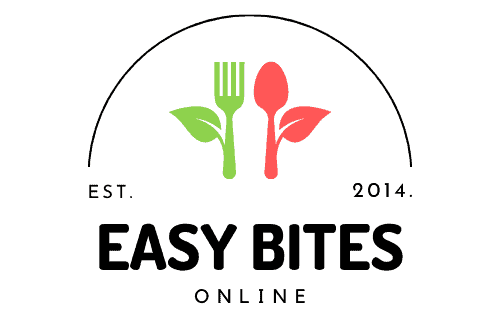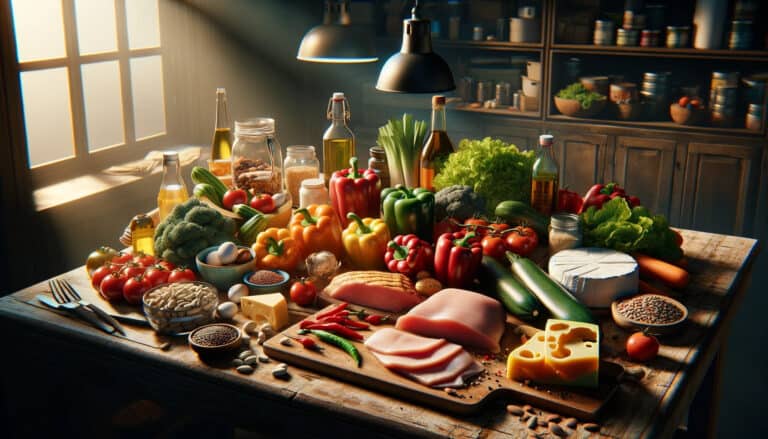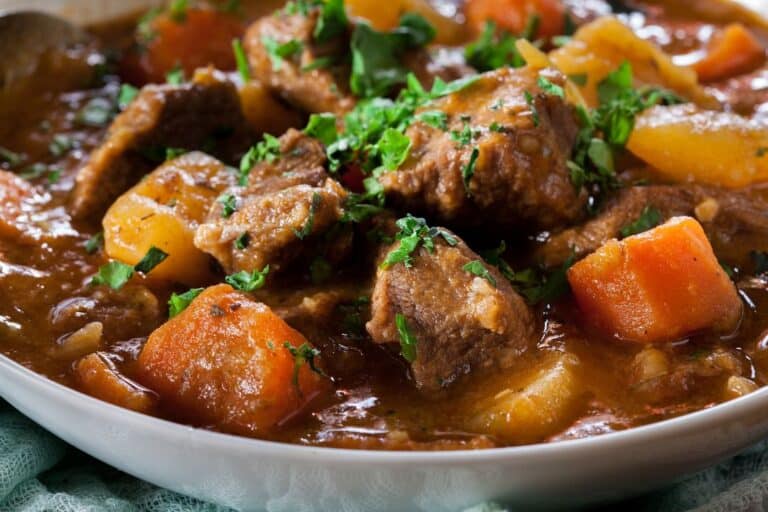Foods That Cause False Positive Drug Test: and Seeds
Drug screening has long been debated in the United States, particularly concerning the potential for false-positive results. A urine sample, subjected to an initial test, can sometimes yield a false positive drug test result due to the consumption of certain foods or medications.
The most common method employed in the initial phase of drug testing is immunoassay testing. However, in the case of a positive test result, a more specific way, such as gas chromatography-mass spectrometry or high-performance liquid chromatography, is often used for confirmatory testing.
Several factors can lead to false positive results. Foods that cause false positive drug tests: In some rare cases, ingesting certain foods or using over-the-counter medications can mimic the presence of illegal substances in a urine drug screen.
For instance, poppy seed ingestion from poppy seed muffins or teas has produced a false positive test for opiates. This is because the seedpod of the opium poppy, Papaver somniferum plant, is the main ingredient from which opium extract is derived.
Even small amounts of poppy seeds can lead to detectable levels of morphine in a urine sample.
Another example that has raised concerns, especially among service members in South America, is the consumption of coca leaves. The coca plant leaves, primarily chewed or brewed in herbal tea, are native to South America.
Though it’s a traditional practice, it can lead to false-positive results for cocaine. This is because cocaine is a psychoactive ingredient derived from the coca plant.
Hemp and hemp seed oil, which have become popular ingredients in granola bars, snack bars, and even certain liquid medications, can also lead to a false positive test for marijuana use.
The 2018 Farm Bill in the United States legalized hemp production with a THC content of less than 0.3%.
However, in some cases, consuming large amounts of hemp-derived products might lead to detectable levels of THC in a blood test.
False positives aren’t limited to just foods. Some over-the-counter cough suppressants, common prescriptions for bipolar disorder, and even vanilla extract, when consumed in large amounts, can lead to false-positive results.
Moreover, a phenomenon known as “mouth alcohol” can sometimes produce a false positive for alcohol consumption.
To stay safe, if you have an upcoming drug test, it’s a good idea to inform the testing agency or your healthcare provider about any prescription medications, over-the-counter medications, or specific foods you’ve consumed recently.
This proactive approach can help in understanding and interpreting any unexpected results.
It’s worth noting that the federal government and the Department of Health and Human Services have been trying to refine the drug testing process.
Recent data, highlighted by Gilbert R. Cisneros Jr., indicates the necessity to establish lower thresholds for certain substances and use confirmatory tests to prevent false positive and false-negative results.
Poppy Seeds: A False Positive Trigger
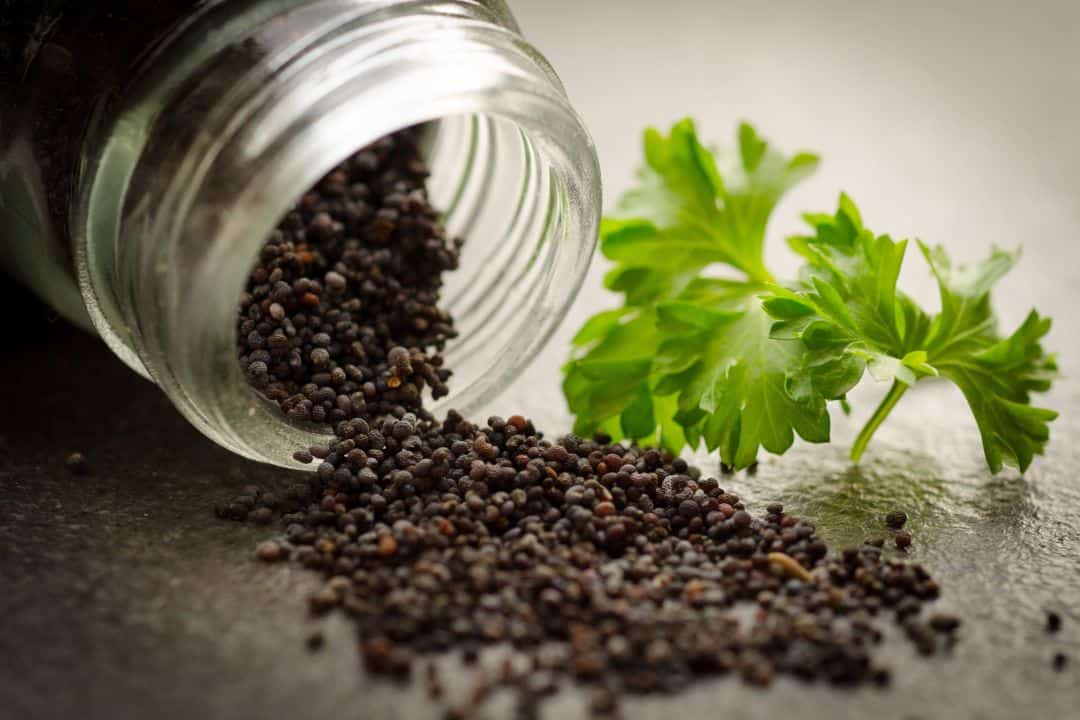
Poppy seeds, derived from the opium poppy plant, carry a notorious reputation in drug testing. This food product is often noted in a person’s journal. This food product is often pointed out in a person’s diary. These seemingly harmless seeds can trigger false positive results in a person’s urine test for opiates due to their opiate residue content.
Opiate Compounds in Poppy Seeds
A person with a positive urine drug test might have consumed the poppy plant, known for its rich opiate content, leading to positive drug tests. This plant can influence the test result.
A person could have a positive drug test result due to morphine, codeine, and quinine, which are some of the naturally occurring opiates found in this plant.
While these compounds are in minimal amounts in a person’s system, they can still be detected during a drug test after consuming foods containing poppy seeds.
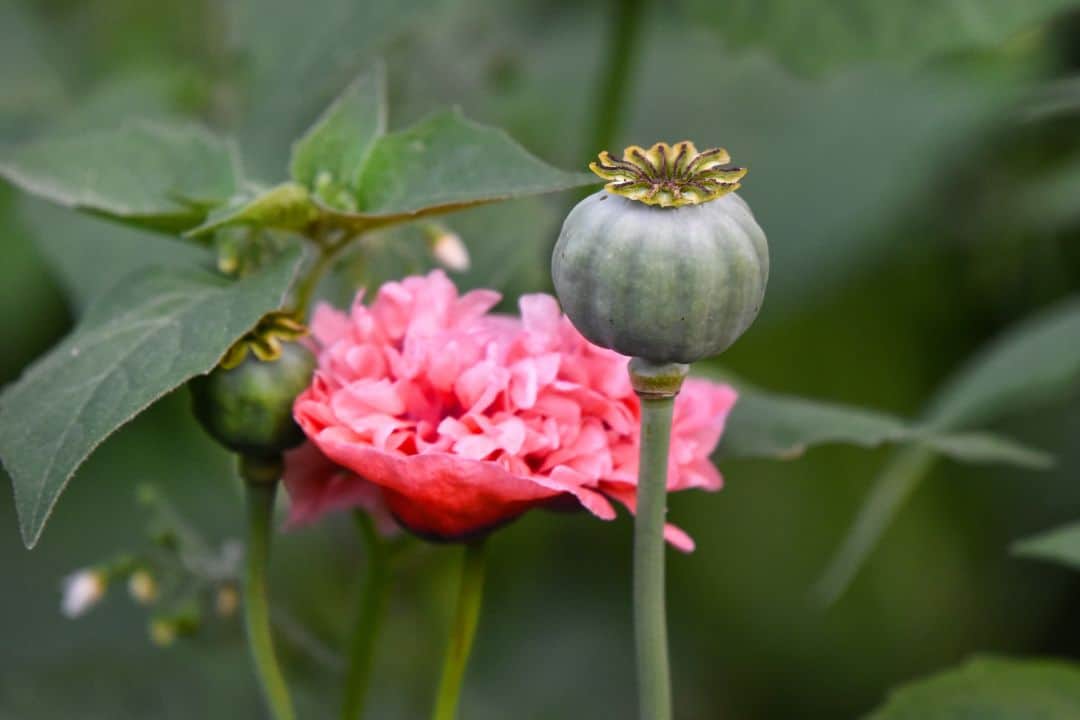
- Morphine: The primary alkaloid component of the opium poppy.
- Codeine: A less concentrated alkaloid found within the plant.
- Quinine: This compound is not an opiate but often appears with morphine and codeine, potentially leading to a positive drug test.
These compounds are not just limited to poppies. Hemp seeds have also been reported to cause false positives on drug tests due to trace amounts of THC (Tetrahydrocannabinol).
Real-life Instances of Misinterpreted Drug Tests
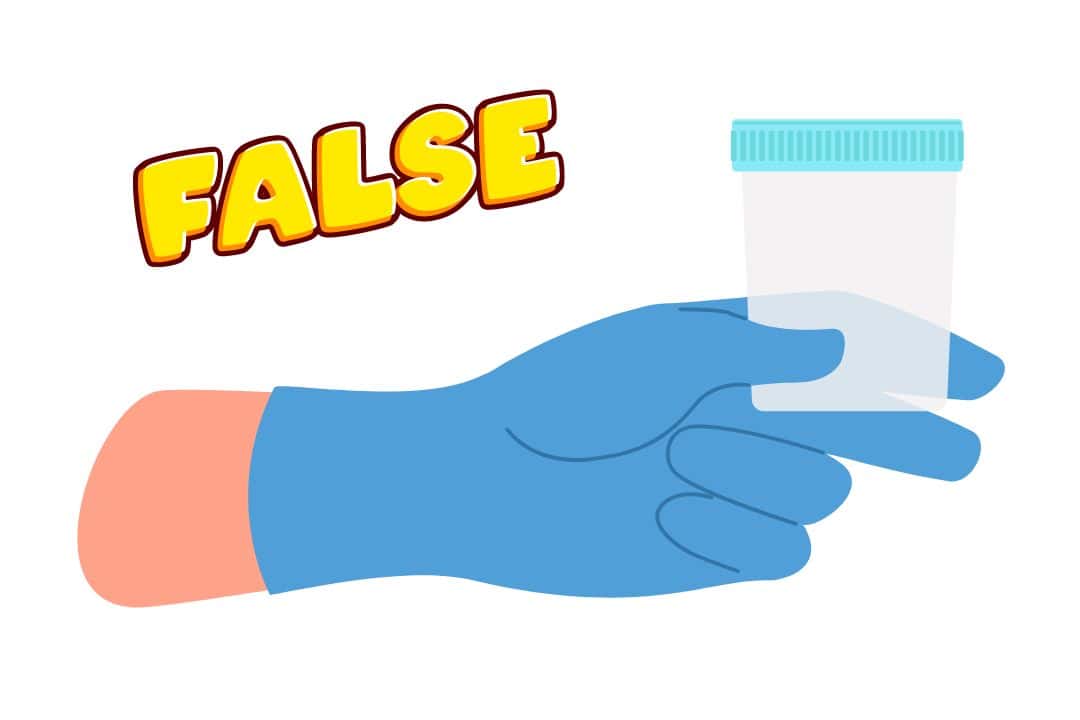
There have been several instances where poppy seed consumption has led to misinterpreted results on drug tests. For example:
- In 1990, a police officer was suspended after testing positive for morphine. He had eaten four slices of a poppy seed cake before his test.
- A mother from Maryland tested positive for opiates during childbirth in 2018, which she later attributed to eating a bagel topped with poppy seeds earlier that day.
While these examples may seem extreme, they highlight the potential impact of consuming foods with certain seeds on drug test results.
Revealing Sesame Seeds’ Drug Test Impact
Investigating Potential Links
There’s a common assumption that sesame seeds can lead to false positives on drug tests. This is due to trace amounts of morphine and codeine in these seeds. The theory suggests that consuming large quantities of sesame seeds could trigger a positive result for opioids.
Scientific studies have been conducted to explore this claim:
- A 2003 study published in the Journal of Analytical Toxicology found that after consuming a loaf and a half of poppy seed bread, participants tested positive for opiates up to 24 hours later.
- In contrast, a 2014 study published in Drug Testing and Analysis concluded that consumption of regular foodstuffs containing poppy seeds leads to ‘false’ positive results in drug tests.
However, it’s important to note that these studies focused on poppy seeds rather than sesame seeds.
Exploring Scientific Studies
To date, there are no peer-reviewed scientific studies specifically investigating the impact of sesame seed consumption on drug test outcomes. While both sesame and poppy seeds belong to the same family, they contain different compounds.
Sesame seeds contain sesamin and sesamolin – lignans known for their health benefits but are not associated with any psychoactive effects or influence on drug testing.
On the other hand, poppy seeds contain trace amounts of opium alkaloids such as morphine and codeine, which can influence drug test outcomes.
This indicates that while there might be some confusion between the two types of seeds due to their similar appearance, their impact on drug test results significantly differs.
Debunking or Confirming Myths
Given the lack of scientific evidence linking sesame seed ingestion with false-positive drug test results, it seems fair to debunk this myth. Any correlation between eating sesame seeds and failing a drug test appears more likely due to misidentification or confusion with poppy seeds.
However, it’s worth noting that drug tests have varying sensitivity levels. In some cases, even trace amounts of certain substances can trigger a positive result.
Therefore, while it seems unlikely, we cannot entirely rule out the possibility until more research is explicitly conducted on sesame seeds and drug testing.
Identifying Everyday Foods Causing False Positives
Common Foods Interfering with Drug Testing
Everyday foods can potentially interfere with drug testing, leading to false positives. This can happen due to specific chemical components in these foods that mimic those found in illicit substances.
- Poppy Seeds: Consuming poppy seeds can lead to a false positive for opiates. Morphine and codeine derived from poppies can be detected in urine up to 48 hours after consumption.
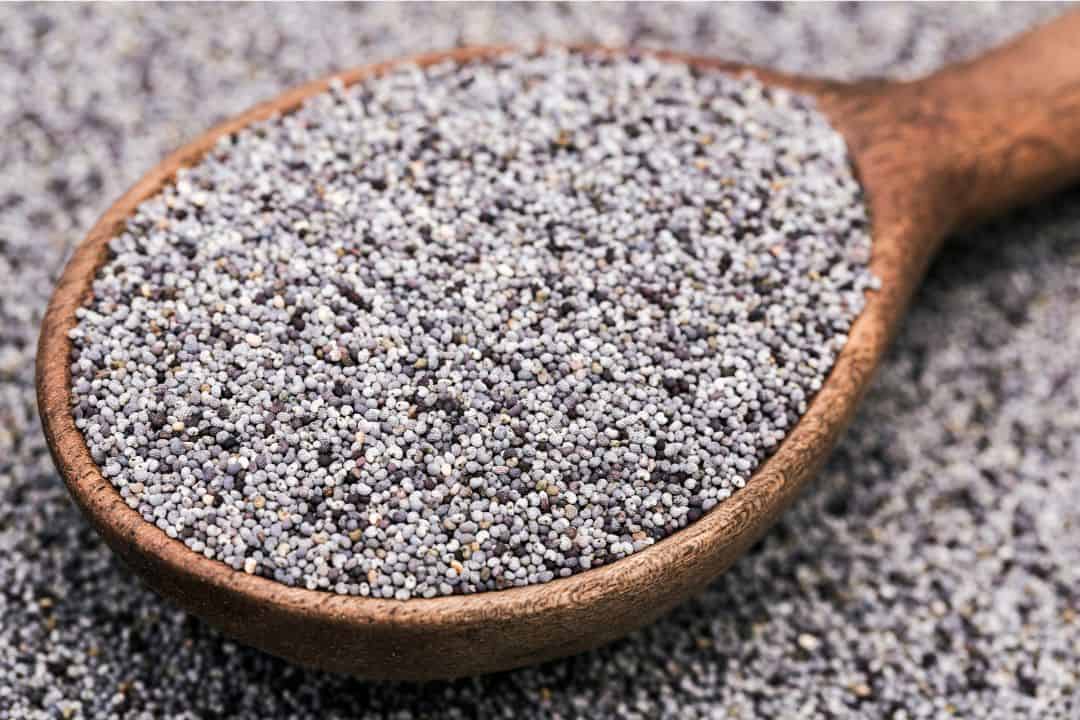
- Hemp Seeds: These seeds may result in a false positive for marijuana due to trace amounts of THC (the active ingredient in cannabis) present.
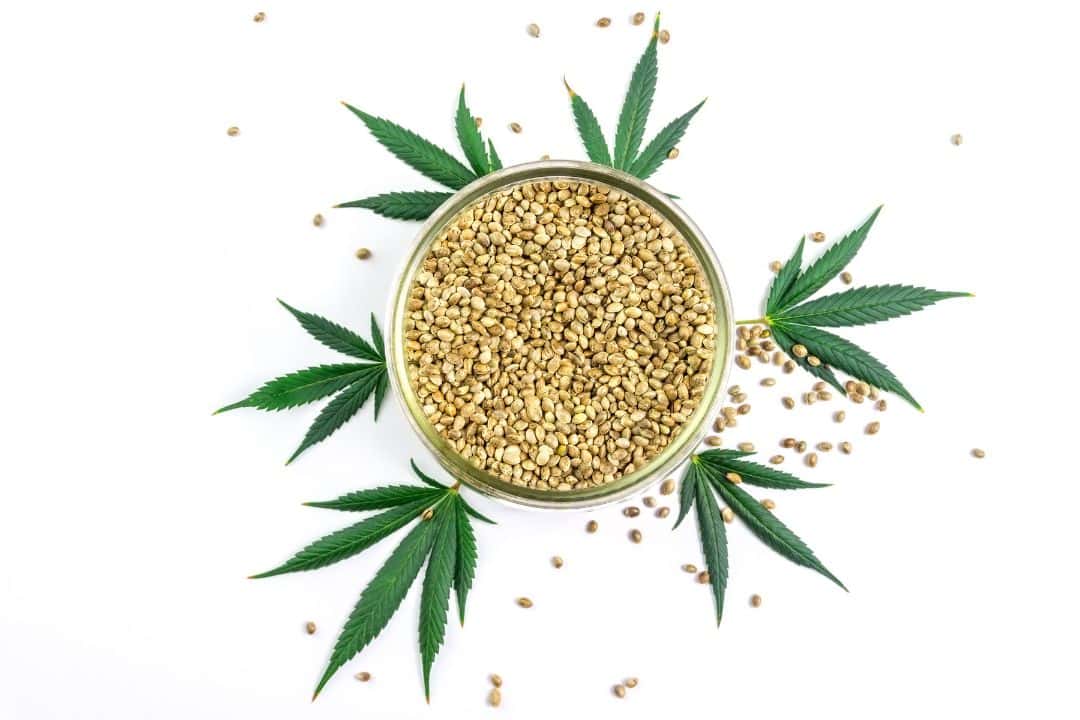
- Coca Tea: This beverage is made from the same plant as cocaine and can cause a false positive for this drug.
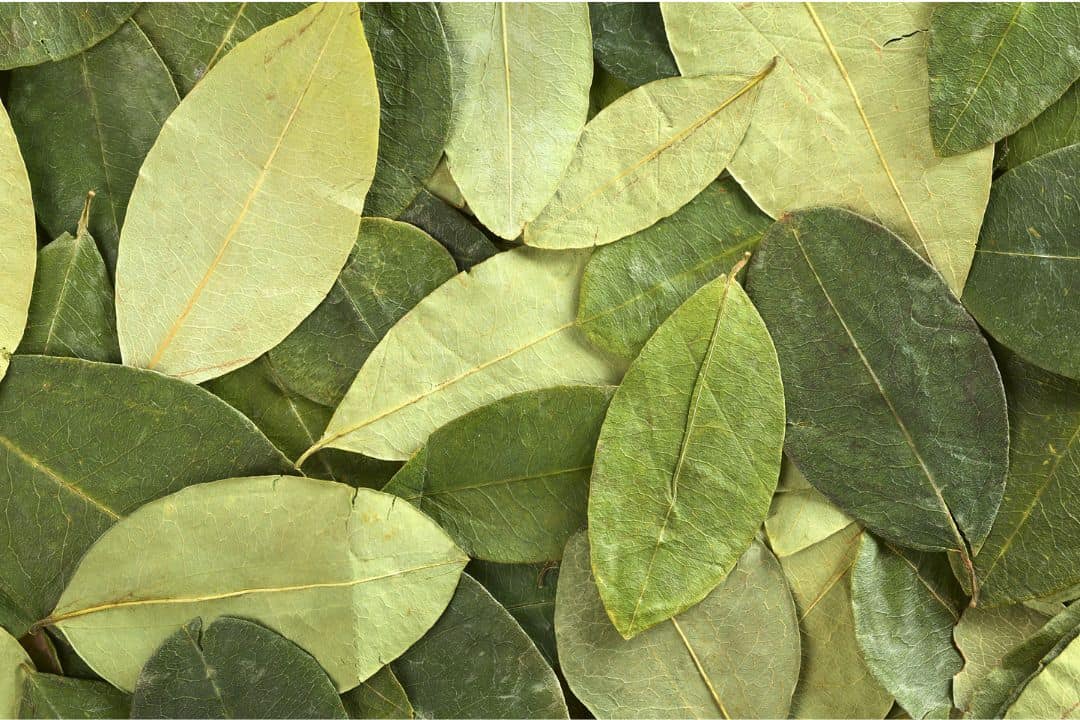
Chemical Components Triggering False Positives
These common foods can trigger false positives because of their chemical makeup. For instance:
- Poppy seeds contain small amounts of morphine and codeine, both opiate drugs.
- Hemp seeds have trace amounts of THC, the psychoactive compound in marijuana.
- Coca-Cola contains alkaloids similar to those found in cocaine.
These similarities often trick test results into indicating drug use where none exists.
Impact of Frequency and Quantity on Test Results
The frequency and quantity of consumption significantly affect whether these foods will cause a false positive.
For example, eating a single poppy seed muffin is unlikely to cause a positive result for opiates. However, consuming several servings over a short period might do so.

Similarly, drinking coca tea once probably won’t result in a cocaine-positive test, but doing so regularly could skew results.
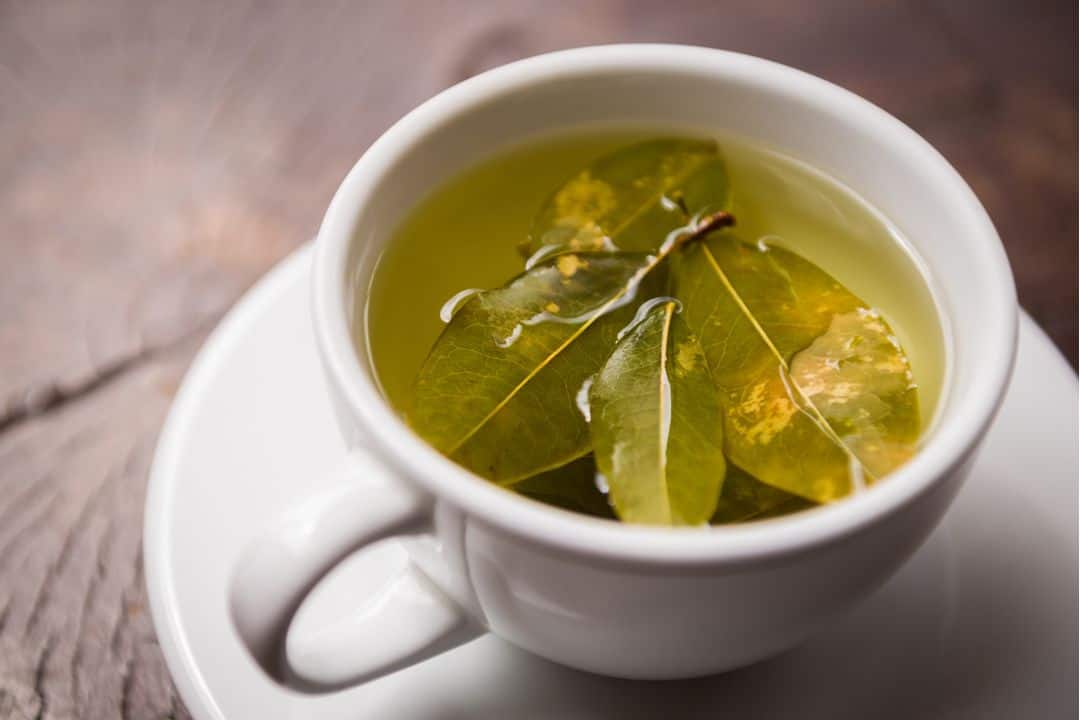
Pizza Consumption: A Potential False Positive?
Pizza Ingredients and Misleading Test Outcomes

Pizza, a universally loved delicacy, has been subjected to unusual claims. One such claim is that its consumption may produce a positive result in drug tests. The question arises – how could a simple slice of pizza cause such an anomaly?
The answer lies in the ingredients. Some baked goods, like pizza, contain yeast, which ferments and produces ethanol during baking. This process might be the problem leading to misleading test outcomes.
- For instance, poppy seeds used as a topping on certain pizzas can skew opiate tests.
- Yeast fermentation during baking can produce trace amounts of alcohol, which may register on alcohol-based tests.
Yeast Fermentation and Alcohol-Based Tests
Yeast fermentation is integral to baking bread-based foods like pizza. During this process, yeast consumes sugars, producing carbon dioxide and ethanol as byproducts.
- When consumed, this trace amount of ethanol could potentially trigger alcohol-based tests.
- However, it’s important to note that the quantity of ethanol produced is minuscule and generally metabolized quickly by our bodies.
Thus, while it is theoretically possible for pizza consumption to yield a positive result on an alcohol test due to yeast fermentation, it’s doubtful unless pizza is consumed in vast quantities.
Debunking Misconceptions Around Pizza
Let’s clarify some misconceptions about pizza’s role in skewed drug test results:
- Consuming normal quantities of pizza will not yield a positive result on drug or alcohol tests.
- Even with toppings like poppy seeds, known to cause false positives in opiate tests, one must consume them in unrealistic amounts for it to be an issue.
- The trace amounts of ethanol from yeast fermentation are typically metabolized too quickly by our bodies to register on an alcohol test.
Breathalyzer Tests: The Influence of Food

Foods Affecting Breathalyzer Readings
Certain foods and drinks can cause a false positive on breathalyzer tests, leading to inaccurate results. This is because of the alcohol content or similar compounds present in these items.
For instance, foods cooked with alcohol can linger in the mouth and skew test results. Similarly, tonic water, known for its quinine content, might also affect readings due to its resemblance to certain illicit substances.
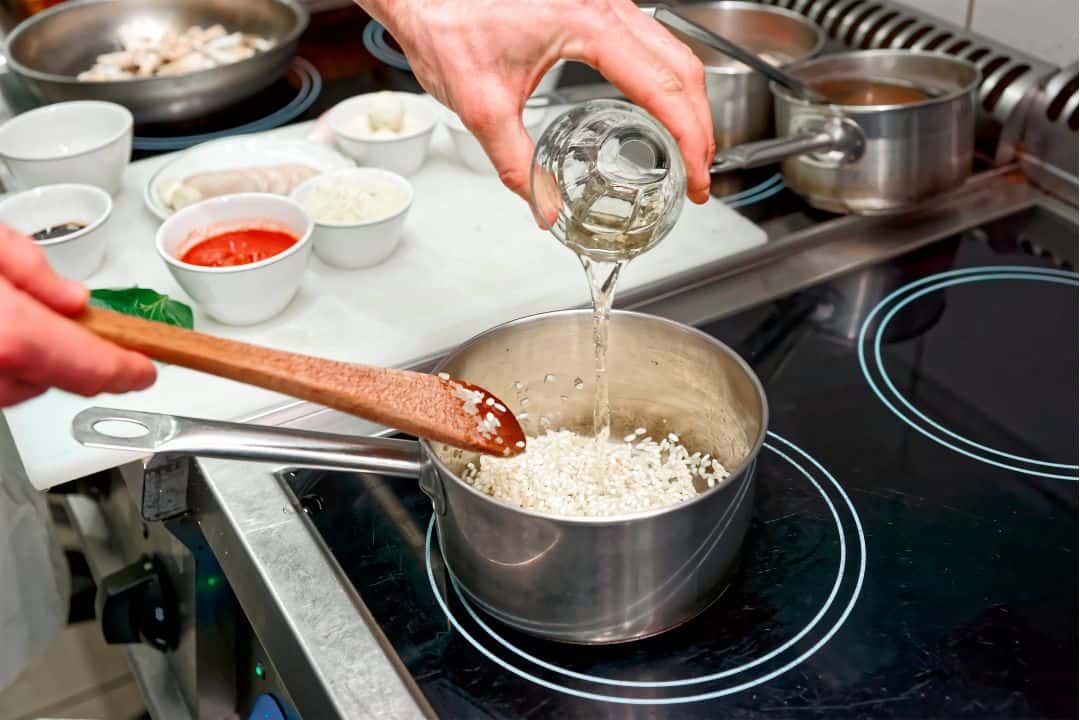
The consumption of poppy seeds is another factor reported to cause false positives on drug tests. Tiny amounts of morphine and codeine found naturally in these seeds can result in detectable levels in urine samples after ingestion.
Science Behind Food-Induced Alterations
The science behind food-induced alterations in breathalyzer data revolves around how the body metabolizes what we eat and drink. When you consume food or beverages containing alcohol or similar compounds, they enter your bloodstream through your digestive system.
Over time, these substances are broken down by the liver and eliminated from the body through urine.
However, traces of these substances can linger in the blood and mouth long enough to be detected by a breathalyzer test. This lingering presence is often why certain foods and drinks can lead to false positives.
For example:
- Fermented products like bread or ripe fruit may contain small amounts of alcohol.
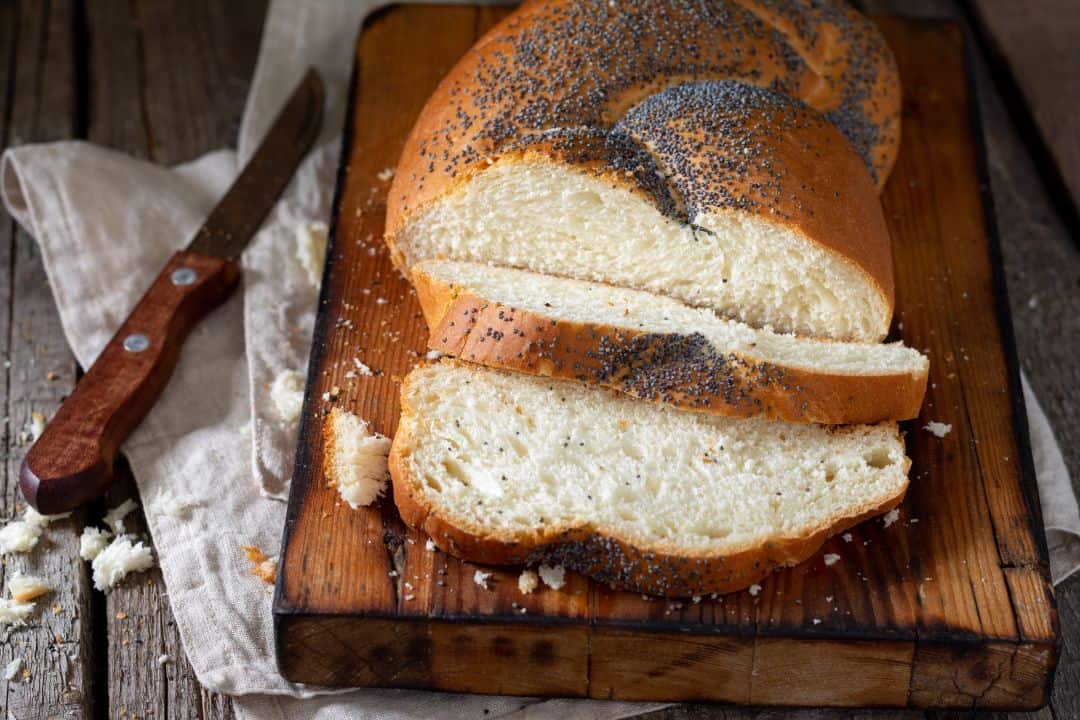
- Certain medications may contain ingredients that could trigger a positive result.
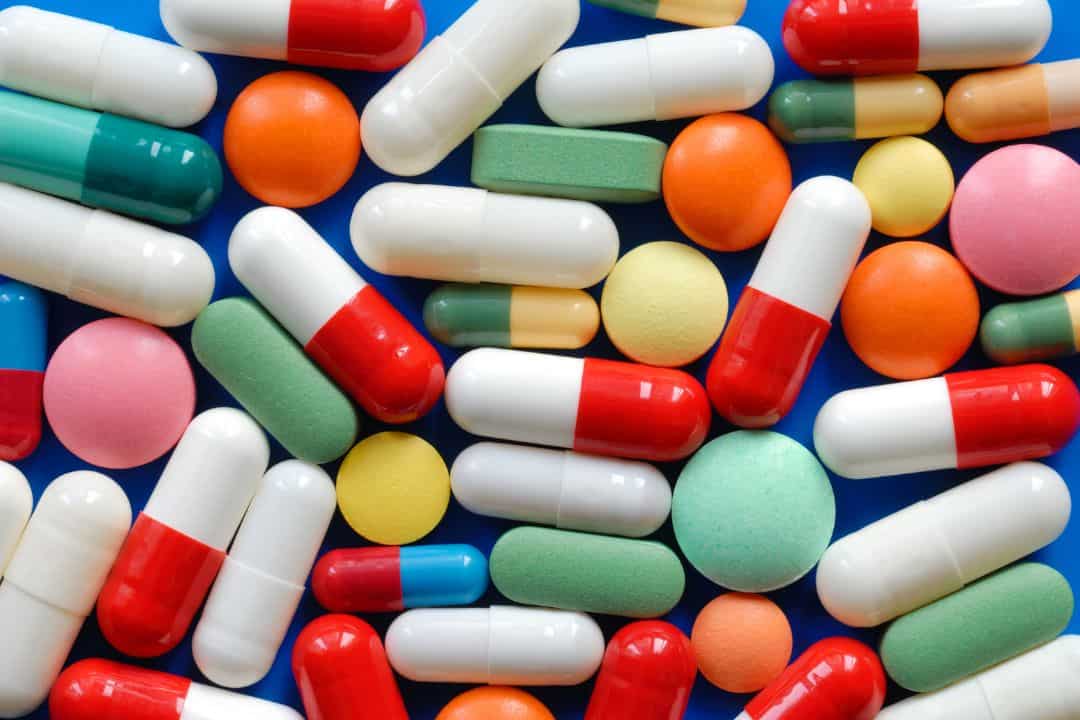
- Mouthwash products often contain high amounts of alcohol.
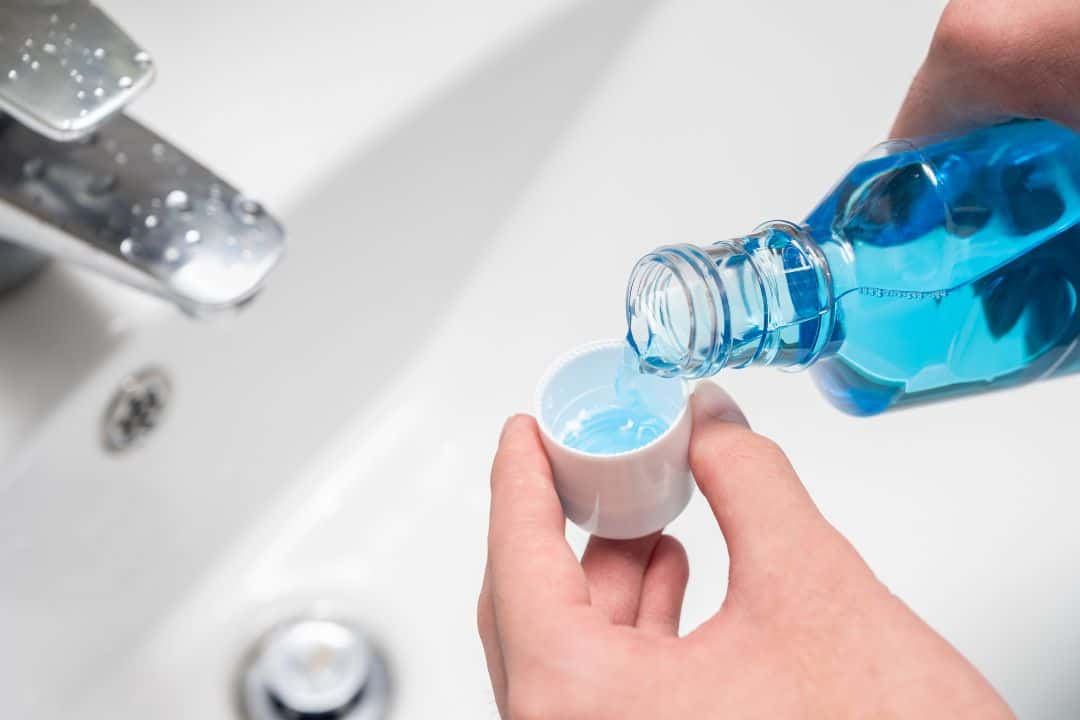
Tips To Avoid Inaccurate Results Due To Food Intake
To avoid inaccurate breathalyzer results due to food intake:
- Refrain from eating or drinking for at least 20 minutes before taking a breathalyzer test.
- Rinse out your mouth with water before testing.
- Be aware of what you’ve consumed before the test – including any medications.
- If you’re required to take a urine drug test, avoid consuming poppy seeds or tonic water.
Lab Testing Complexities and Cutoff Thresholds
Lab procedures, sensitivity levels, and cutoff thresholds for various substances are crucial in determining test results. The concentration of a substance detected in a sample is compared against the threshold level set by the lab.
If the concentration exceeds this level, the test result is positive.
Consider opiate concentrations as an example:
- Codeine: 2000 ng/mL
- Morphine: 2000 ng/mL
- Hydrocodone: 300 ng/mL
- Hydromorphone: 300 ng/mL
These values are not arbitrary but are based on federal guidelines and scientific research. However, they’re not infallible.
False Positives Scenarios
False positives occur when trace amounts of substances trigger high readings on tests. For instance, certain foods, such as poppy seeds, can lead to elevated codeine ratios due to their natural opiate content.
The issue lies with how sensitive these tests are. High sensitivity can detect even minute concentrations of drugs or their metabolites. This leads to false positives when non-illicit substances with similar chemical structures are present.
To illustrate this point, let’s consider two scenarios:
- John consumes a poppy seed bagel for breakfast before taking a urine drug test later that day. His test results returned positive for opiates because the lab’s susceptible equipment detected trace amounts of opiates from the seeds.
- Sarah uses prescription cough syrup containing codeine and tests positive for opiates despite using them legally and within recommended doses.
Both cases demonstrate how current testing protocols can mistake innocent consumption for illicit drug use due to their inability to differentiate between sources or account for legal usage.
Improvements Needed in Lab Protocols
To reduce errors like these, labs need to refine their protocols:
- Increase cutoff thresholds—Higher thresholds ensure only significant concentrations trigger positive results.
- Adopt more specific testing methods—Tests that differentiate between drug types and their metabolites would reduce false positives.
- Consider individual factors—Factors like body mass, metabolism rate, and drug tolerance can affect concentration levels. Accounting for these could provide a more accurate picture.
Implementing these changes would require careful consideration and extensive research to ensure accuracy isn’t compromised. But the potential benefits of reducing false positives — less unnecessary stress for individuals and fewer resources wasted on confirmatory tests — make it a worthy pursuit.
Wrapping Up the Food-Induced False Positives
The interplay between food consumption and drug test results is a complex one. From poppy seeds to pizza, everyday foods have shown the potential to skew test outcomes, leading to unwarranted stress and confusion.
Breathalyzer tests are not immune either, with certain foods influencing readings. Add to this mix the intricacies of lab testing processes and cutoff thresholds, and navigating false positives becomes an even more significant challenge.
Individuals must stay informed about these food-drug test interactions to avoid unnecessary complications. Employers and institutions should also consider these factors when interpreting drug test results.
Awareness can help prevent misinterpretations and ensure fair assessments for all involved parties.
Ready to learn more? Dive deeper into our resources or reach out to our team of experts for personalized guidance.
❓🤔 FAQ 1: Can eating poppy seeds cause a false positive in drug tests?
👍 Yes, consuming poppy seeds can lead to a false positive in drug tests due to their opiate content.
❓🤔 FAQ 2: Can pizza consumption affect drug test results?
👍 While not familiar, there are instances where yeast fermentation in pizza dough has resulted in elevated alcohol levels in blood or breathalyzer tests.
❓🤔 FAQ 3: What other everyday foods can cause false positives in drug tests?
👍 Certain types of breads, ripe fruits like bananas and pears, and fermented beverages like kombucha can potentially impact drug test results.
❓🤔 FAQ 4: How do lab testing complexities contribute to false positives?
👍 Various factors, such as the sensitivity of the assay used for testing, individual metabolism rates, and cutoff thresholds used by labs, can contribute towards false positive results.
❓🤔 FAQ 5: How can I avoid food-induced false positives?
👍 Awareness of the foods that can influence test results and avoiding them before testing could be helpful. Informing your healthcare provider or tester about your recent dietary intake might also be beneficial.
❓🤔 FAQ 6: Where can I find more information about this topic?

Born and raised in a family of foodies, Georgia’s passion for cuisine was nurtured from a young age as she learned the intricacies of flavor and texture from her grandmother’s kitchen. As an adult, this early fascination blossomed into a full-fledged love affair with the culinary world.
